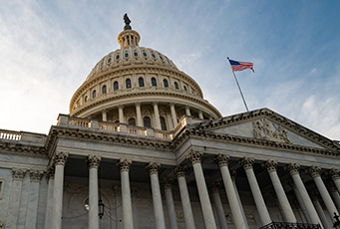The year 2020 has been strange. In particular, COVID-19 altered the childcare landscape for so many parents. Some families have experienced a decrease in childcare expenses due to the pandemic, whether it be their daycare temporarily closing or a canceled summer camp. If you’re a parent with unused funds in a dependent care FSA, what are your options? Moreover, what should your dependent care FSA election look like for 2021?
What is a dependent care FSA?
A dependent care flexible savings account (FSA) is an account offered by employers to allow employees to make pre-tax contributions and receive tax-free reimbursements for qualified childcare expenses. The maximum contribution in 2020 is $5,000 for a married couple or $2,500 for a single individual. Below is a list of common qualified childcare expenses:
- Preschool
- Before or after school programs
- Babysitting (work-related)
- Nanny
- Day camps
Not all employers offer these types of accounts. If you’re eligible to open an account, beware that FSAs are notorious for having “use-it-or-lose-it” stipulations, and funds in the account do not usually roll over from year to year. However, some employers grant leniency in the form of grace periods. A grace period allows employees to spend down remaining account balances from the previous year for a pre-determined period, usually ending on March 31 of the new plan year.
What options do you have for unused dependent care FSA funds?
In May 2020, the IRS ruled that employers can extend grace periods for unused dependent care FSA funds. Employers who took the IRS up on this guidance are allowed to direct 2019 unused balances towards 2020 childcare expenses up until December 31, 2020. However, the IRS has not addressed unused balances from contributions to FSAs made during the 2020 plan year. There is a chance that employers will be allowed similar grace period flexibility in 2021, but this is not guaranteed.
In the meantime, here are some steps to take if you anticipate leftover dependent care FSA funds from the 2020 plan year:
- Inquire about grace period provisions your company might already offer (as mentioned above, some companies allow for a grace period ending on March 31 regardless of COVID-19)
- Determine if your company altered their plan mid-year 2020 to allow for an extended grace period until December 31, 2020 (if they did, they might consider doing the same in 2021 depending on how the IRS ultimately rules on the topic)
- Comb through year-to-date expenses and determine if there are any qualified childcare expenses that you overlooked or forgot to reimburse
- Be aware of any upcoming qualified childcare expenses for the remainder of the year and be sure to submit for reimbursement
What should you consider for your 2021 dependent care FSA elections?
Give careful consideration before making 2021 dependent care FSA elections. What were your childcare expenses in 2020? Did COVID-19 alter your expenses at all? Unfortunately, no one knows what effect the virus will continue to have on workplaces and childcare in the New Year. Make a conservative estimate and contribute only the amount you will spend in 2021. The tax savings experienced from dependent care FSAs are nice, but avoiding lost contributions at the end of the year should be the primary goal!
Schedule a Consultation
We have helped our clients answer these questions and more. If you want a clear understanding of your financial future, and need help making changes to reach your goals, schedule a consultation and we can get started.
Recommended Articles
“Trump Accounts”: A Family’s Guide to One Big Beautiful Opportunity
Trump Accounts are part of the OBBB and designed to...
Business Owners: Employ Your Child & Build Their Wealth
Paying your child 1099 income through your business,...
HSA Contributions for Adult Children on Your Health Plan
Many understand the tax advantages of employing a health...





